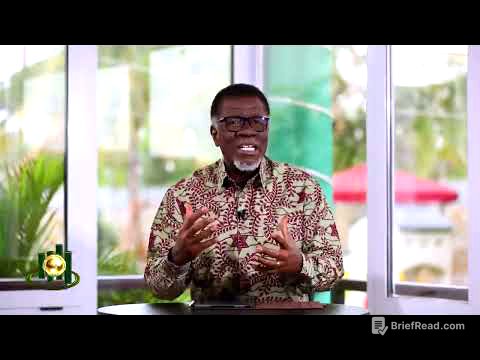TLDR;
The video presents a debate on whether Islam is a religion of peace or violence. The speaker, Hassan Radwan, argues passionately that Islam is a religion of peace and compassion, and that the actions of a small minority of extremists do not represent the beliefs and practices of the vast majority of Muslims worldwide. He provides historical and scholarly evidence to counter the claims made by the opposition, emphasizing the importance of understanding Islam from the perspective of mainstream Muslim scholars and believers.
- Islam is a religion of peace, mercy, and compassion, as evident from the Quran and the teachings of prominent Islamic scholars.
- The actions of a tiny minority of extremists do not define or represent the beliefs and practices of the 1.6 billion Muslims around the world.
- It is important to seek understanding and engage with experts on Islam, rather than relying on generalizations and stereotypes.
- Religions, including Christianity, have been used to justify violence and intolerance throughout history, but that does not define the core beliefs and values of the religion.
Islam: A Religion of Peace or Violence? [0:03]
The speaker, Hassan Radwan, begins by introducing himself as a Muslim and an ambassador for Islam. He apologizes for the actions of extremists who have committed violence in the name of Islam, such as the Bali bombings and the killing of Theo van Gogh. However, he strongly rejects the notion that Islam is a religion of violence and terror, and argues that these actions do not represent the true teachings of the religion.
Radwan then provides historical and factual evidence to counter the claims made by the opposition. He points out that Islam was founded in 610 AD, while Saudi Arabia was only established in 1932 AD, dispelling the notion that Islam originated in Saudi Arabia. He also highlights the significant contributions of Muslim scholars and scientists, such as Al-Khwarizmi, who is credited with developing the foundations of algebra and algorithms, which have been crucial to the advancement of technology and modern civilization.
Addressing the issue of anti-Semitism, Radwan acknowledges that it is a problem in some parts of the Muslim community, but argues that it was imported from Europe, where the Jewish people faced persecution and genocide. He challenges the opposition's attempt to portray Islam as inherently anti-Semitic, citing the views of prominent Jewish figures like Tom Friedman, who believe that had Muslims been in charge of Europe during the Holocaust, more Jewish lives would have been saved.
Radwan then delves into the core teachings of Islam, emphasizing that the Quran introduces God as a God of mercy and compassion, and that the religion allows for military action and violence only in limited and specific contexts. He argues that the majority of Muslims around the world do not engage in violence or extremism, and that the opposition's claims are based on a misunderstanding and misrepresentation of the religion.
Radwan cites the findings of terrorism expert Professor Robert Pape, who concluded that there is little connection between suicide terrorism and Islamic fundamentalism or any of the world's religions. Instead, Pape found that the primary motivation for such attacks is a specific secular and strategic goal to compel modern democracies to withdraw military forces from territory that the terrorists consider to be their homeland.
Radwan further reinforces his argument by highlighting the views of prominent Islamic scholars, such as Shaykh Afifi al-Akiti and Shaykh Tahir ul-Qadri, who have unequivocally condemned terrorism and the killing of innocent civilians. He emphasizes that these mainstream Islamic teachings and interpretations have been consistent for years, and that the opposition's claims are not representative of the beliefs and practices of the vast majority of Muslims.
In conclusion, Radwan urges the audience to trust the peaceful and compassionate message of Islam, as represented by the majority of Muslims worldwide, and to reject the divisive rhetoric and hate-fueled arguments of the opposition. He emphasizes the importance of understanding and engaging with the religion, rather than relying on generalizations and stereotypes, and calls for unity and understanding among all people, regardless of their religious beliefs.









